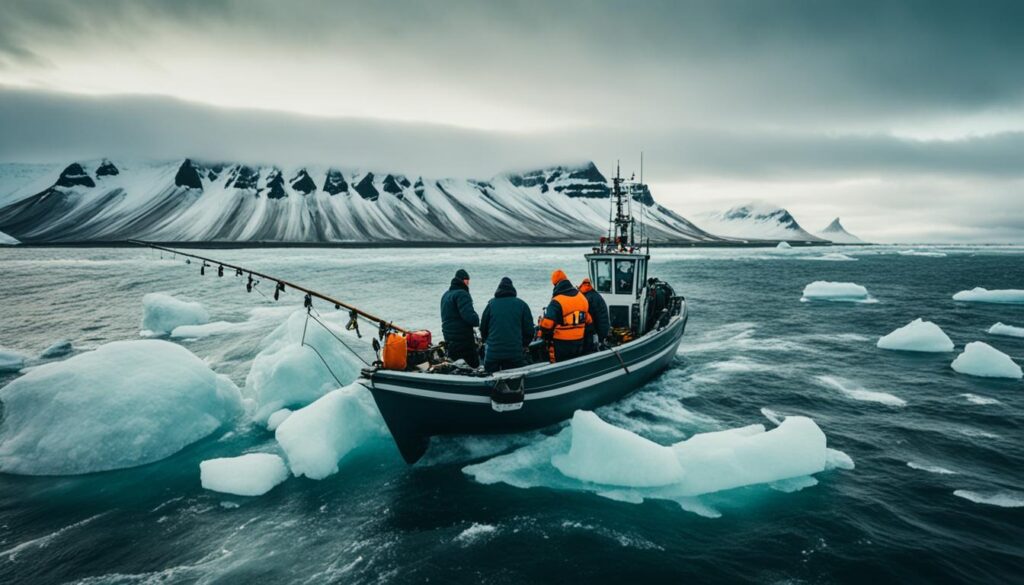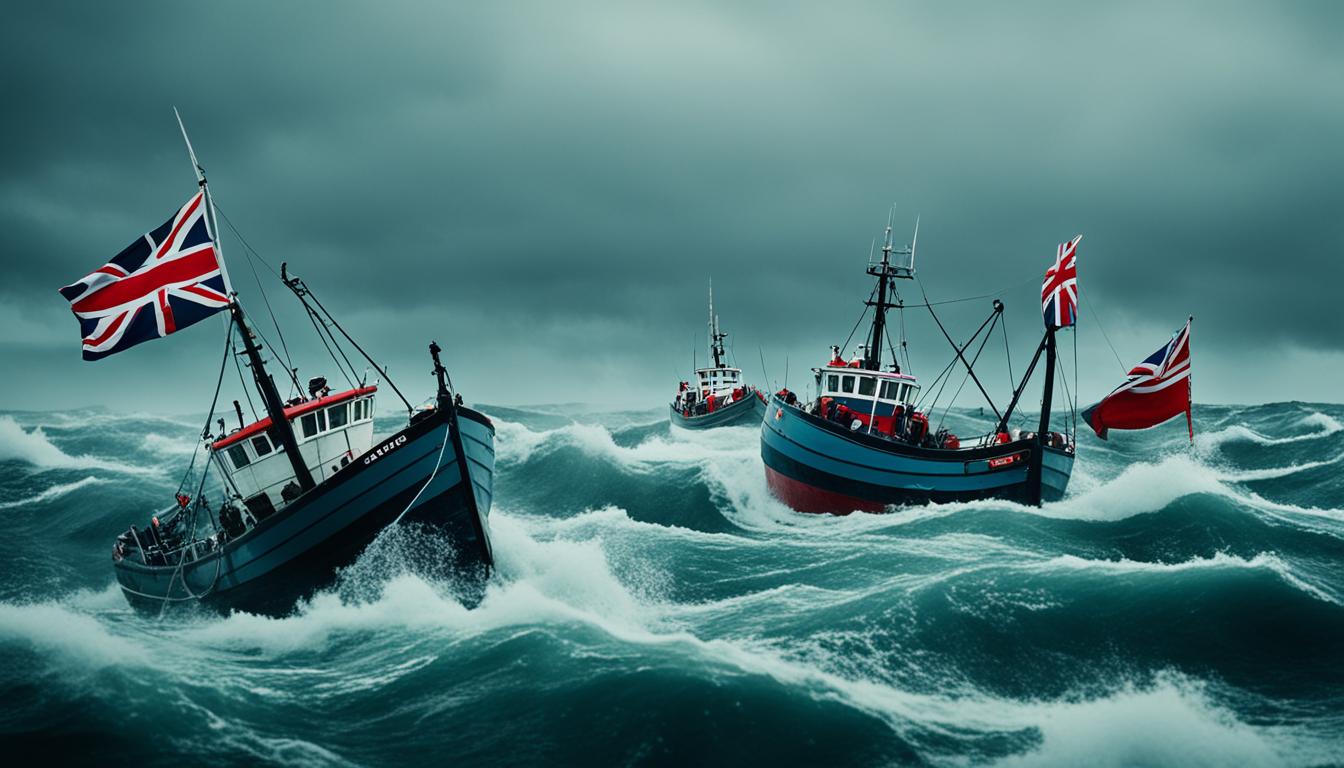The Cod Wars were a series of heated fishing disputes between Iceland and the United Kingdom that took place in the North Atlantic during the mid-20th century. These confrontations not only strained diplomatic relations between the two nations but also played a significant role in shaping international maritime law. The term “cod war” was coined by a British journalist in early September 1958, highlighting the intensity of these conflicts over fishing rights.
Although the Cod Wars did not meet the conventional thresholds for a traditional war, they can be more accurately described as militarized interstate disputes. The conflicts arose as Iceland sought to protect its vital fishing industry by extending its territorial waters, while the United Kingdom, heavily reliant on cod fishing in the region, objected to these claims. The disputes escalated over time, with both countries deploying naval vessels to assert their positions, resulting in a series of tense standoffs and occasional collisions at sea.
The Cod Wars had far-reaching consequences beyond the realm of fishing, as they tested the limits of international maritime law and exposed the complexities of managing shared natural resources. The resolution of these conflicts required delicate diplomacy and compromise, ultimately leading to a shift in the balance of power in the North Atlantic and a redefinition of territorial waters.
Key Takeaways
- The Cod Wars were a series of fishing disputes between Iceland and the United Kingdom in the mid-20th century.
- The conflicts arose as Iceland sought to protect its fishing industry by extending its territorial waters, while the UK objected to these claims.
- The disputes strained diplomatic relations between the two nations and involved naval confrontations.
- The Cod Wars tested the limits of international maritime law and exposed the complexities of managing shared natural resources.
- The resolution of the conflicts required delicate diplomacy and compromise, leading to a shift in the balance of power in the North Atlantic.
The Importance of Cod Fishing to Iceland and Britain
For centuries, seafood has been a crucial component of the diet in Iceland, Britain, and other Nordic countries. Among the various types of fish, cod has stood out as a particularly significant resource, especially for Iceland. This small island nation has relied heavily on cod as a primary food source and a vital export commodity, playing a central role in its economy.
Iceland’s fishing industry, with cod at its heart, has been instrumental in propelling the country towards prosperity and modernization. The abundant cod stocks in the waters surrounding Iceland have provided a reliable source of income and employment for a substantial portion of the population. The seafood sector, driven by cod exports, has consistently contributed to Iceland’s economic growth and stability.

In contrast, while cod fishing was also important to Britain, its economy was not as heavily dependent on this specific industry compared to Iceland. Nevertheless, British fishing communities that relied on cod suffered significant losses as a result of the Cod Wars. The restricted access to rich fishing areas dealt a severe blow to these communities, leading to the loss of thousands of jobs and the decline of local economies that had long been sustained by the cod fishing industry.
The Cod Wars highlighted the critical importance of this resource to both Iceland and Britain, albeit to varying degrees. For Iceland, cod fishing was a matter of national economic survival, while for Britain, it represented the livelihood of specific coastal communities. The disputes over fishing rights and the allocation of cod stocks underscored the deep-rooted significance of this seafood resource in the diets, economies, and cultural identities of both nations.
The Origins and Escalation of the Cod Wars
The modern Cod Wars began in 1952 when Iceland expanded its territorial waters from 3 to 4 nautical miles, leading to a ban on Icelandic ships landing fish in British ports. This initial dispute set the stage for further conflicts over fishing rights and territorial boundaries in the North Atlantic.
In 1958, tensions escalated significantly when Iceland unilaterally extended its territorial waters to 12 nautical miles. Britain refused to accept this expansion, arguing that it violated international law and threatened the livelihoods of British fishermen who had long fished in these waters. The British government deployed the Royal Navy to protect its trawlers, asserting their right to fish within the disputed territory.
The Icelandic Coast Guard responded by attempting to chase away the British fishing vessels using various tactics, including cutting fishing nets. These confrontations led to a series of tense standoffs between the Royal Navy and the Icelandic Coast Guard, with both sides determined to assert their claims over the disputed fishing grounds.
As the Cod Wars intensified, Iceland leveraged its strategic importance to NATO during the Cold War. Iceland threatened to withdraw from the alliance, which would have forfeited NATO’s access to a critical anti-submarine warfare chokepoint in the North Atlantic. This threat added a geopolitical dimension to the conflict, pressuring Britain to seek a resolution to the fishing disputes.
The escalation of the Cod Wars highlights the complex interplay between economic interests, territorial sovereignty, and international alliances. The conflicts over fishing limits and territorial waters in the North Atlantic became a microcosm of the broader tensions and power dynamics of the Cold War era.
The Resolution and Aftermath of the Cod Wars
The Cod Wars ultimately concluded with agreements that favored Iceland’s position. Britain accepted Iceland’s establishment of a 12-nautical-mile exclusive zone and a 200-nautical-mile Icelandic fishery zone. This set a precedent, and in 1982, the United Nations Convention on the Law of the Sea adopted the 200-nautical-mile exclusive economic zone as an international standard.
The resolution of the Cod Wars had significant impacts on both nations. The British fishing industry suffered severe consequences, with fishing communities losing access to rich fishing areas and thousands of jobs being lost. On the other hand, Iceland continued to benefit economically from its waters, carefully managing its fish stocks to prevent overfishing. Despite these efforts, concerns about overfishing persisted, and in 1998, the World Wildlife Foundation placed cod on the endangered species list, leading to the implementation of global catch limits.
In the aftermath of the Cod Wars, diplomatic ties between Iceland and Britain were strained. However, over time, the two nations worked to rebuild their relationship, recognizing the importance of cooperation and mutual understanding. Today, Iceland and Britain maintain a cordial relationship, collaborating on various issues of common interest, such as trade, security, and environmental protection.

Leave a Reply